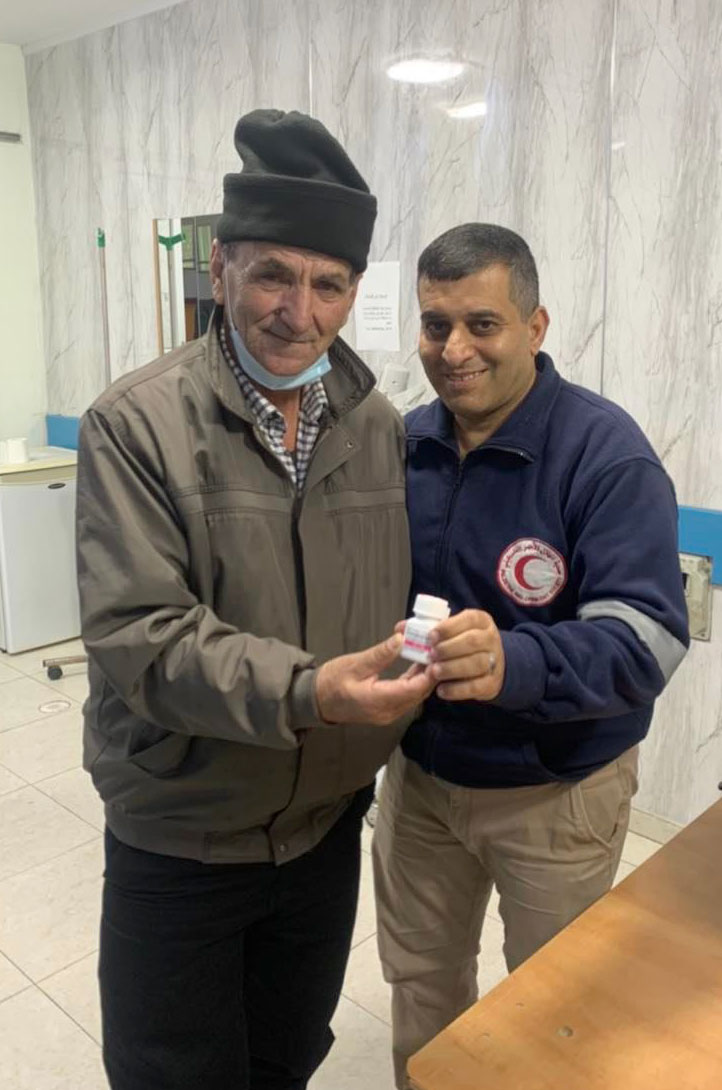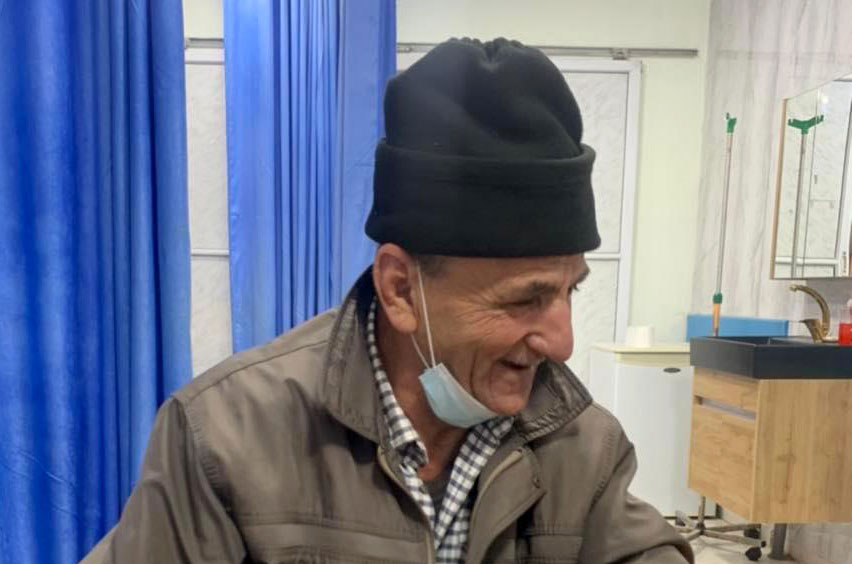Jan, 2023
Donated medical aid helps ensure vulnerable patients in the West Bank can access their prescribed medicine
Abd, 65, is a loving father of ten. He has always had to stretch his budget to buy his medications. After a work-related accident, he was left disabled and unemployed. It was a further setback to his family's financial situation.
“Medicines in Idhna are in low stock,” he says. “I often have to travel to Israel to get the medicines I need, which in my circumstances is a financial burden. And it takes a physical toll on my body.”
Diabetes medication is in high demand in Palestine. According to Ma’mar Tmeizi, managing director at the Idhna Palestinian Red Crescent Society, some 40% of the elderly population in the West Bank live with Type 2 diabetes.
Anera recently distributed canagliflozin oral tablets to seven clinics and hospitals across the West Bank to help patients living with Type 2 diabetes. This is a third-line medication to treat Type 2 diabetes, to be used when patients have not responded to other medicines. The drug was available thanks to a medical aid donation from the Catholic Medical Missions Board (CMMB). We plan to distribute this medication to more clinics in the future, depending on their needs. The shipping costs of the donated medicine were covered by Islamic Relief USA through its Palestine Humanitarian Aid project.


“I often have to travel to ... get the medicines I need, which ... is a financial burden [and] takes a physical toll."
Thanks to the donated shipment, Abd was able to receive his medication from the Palestinian Red Crescent Society in Idhna free of charge - a medication that would have otherwise cost him $50.
Anera has a long history of work in this town. With the support of USAID, Anera remodeled Idhna’s government health clinic, adding a pharmacy that the whole town now visits to obtain many of their medications.




Tmeizi says that, “Thanks to Anera and its generous donor CMMB supplying this medication, our facility was able to allocate the funds that it saved to finish building and opening the clinic’s laboratory.”
Poor families struggle to obtain medicines in the midst of the difficult living conditions of this town. Pharmacist Ahmad Awawdeh shares a story:
“We provided the canagliflozin medication to an older blind woman today. I’ve seen her come by three times before in search of the same medication, only to leave empty handed,” he says of the financially disadvantaged woman.
Even her successful visit today was not straightforward. “She had to walk three kilometers on foot to get her life-saving medication with a little girl guiding her along the way.”
The views expressed herein are those of Anera and shall not, in any way whatsoever, be construed to reflect the official opinion of IRUSA, its Islamic Relief affiliates, or its donors.


